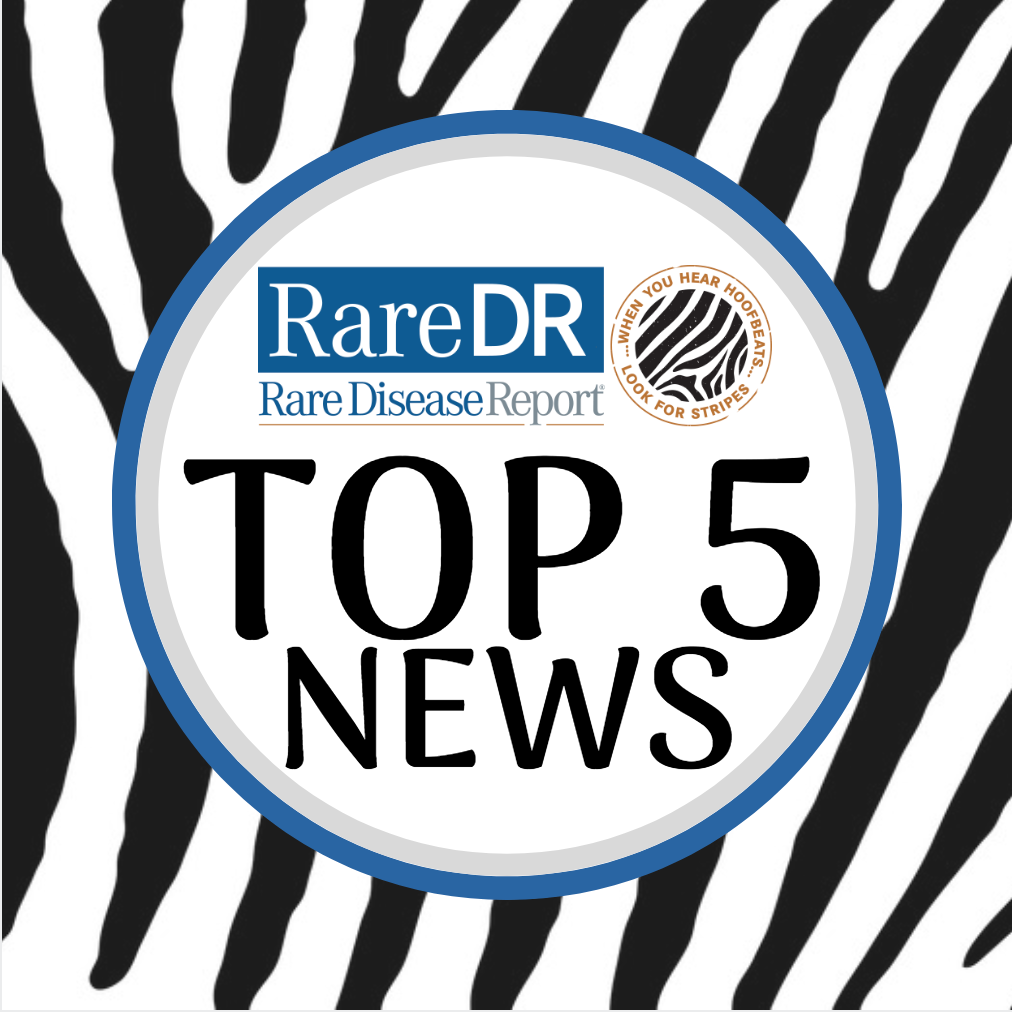Article
Top 5 Rare Disease News of the Week—July 29, 2018
Author(s):
Stay up-to-date on the latest rare disease news by reading the top 5 articles of the week.

#5: UNC Researchers Investigate Role of Mutations in Glioblastoma
Investigators from the University of North Carolina (UNC) Lineberger Comprehensive Cancer Center have discovered how different mutations in a specific gene promote the growth of the most lethal form of brain cancer: glioblastoma.
In their preclinical study, investigators explored locations and certain sequences of the often-mutated PIK3CA gene in connection to better responses to particular drugs. They found that mutational status was not linked to a response to a single targeted therapy, but rather, to a combination of treatments. As such, the investigators stress that a more refined approach to precision medicine for glioblastoma is needed, which would involve a better understanding of the mutations that occur in each particular tumor.
#4: Phase 2 Bardoxolone Trial Shows Efficacy for Alport Syndrome- & ADPKD-Caused CKD
Read more about the role of mutations in glioblastoma.Reata Pharmaceuticals has released positive data from 2 phase 2 trials assessing bardoxolone methyl (bardoxolone) in patients with chronic kidney disease (CKD) caused by Alport syndrome and autosomal dominant polycystic kidney disease (ADPKD).
The investigators report a statistically significant improvement in kidney function maintained in patients with Alport Syndrome after 48 weeks of treatment, statistically significant retained benefit of 4.1 mL/min in patients with Alport Syndrome after 48 weeks of treatment and 4 weeks of drug withdrawal, and a statistically significant improvement in kidney function in patients with ADPKD after 12 weeks of treatment.
#3: DMD & Other Rare Orphan Diseases Tackled by AI Collaboration
Read more about phase 2 trial results for bardoxolone as a treatment for patients with chronic kidney disease (CKD) caused by Alport syndrome and autosomal dominant polycystic kidney disease (ADPKD).A collaboration in artificial intelligence (AI) is seeking to change the landscape for Duchenne muscular dystrophy (DMD), and other rare diseases. With the average development time for novel orphan drugs taking 10 years or more, an accelerated approach to the process is imperative.
Insilico Medicine, a leading artificial intelligence company in medicine has partnered up with A2A Pharmaceuticals, Inc, a biotechnology company focused on novel drug development, to create a new company referred to as Consortium.AI, which will strive to apply the latest advances in AI in an effort to discover novel small molecules for DMD and other rare diseases.
#2: FDA Approves First Treatment for Rare Tumors of the Adrenal Gland
Read more about the AI collaboration making novel drug developments for rare diseases like DMD.The US Food and Drug Administration (FDA) has approved Progenics Pharmaceuticals' iobenguane I 131 (Azedra) injection for intravenous use for the treatment of adults and adolescents age 12 and older with rare tumors of the adrenal gland (pheochromocytoma or paraganglioma) that cannot be surgically removed (unresectable), have spread beyond the original tumor site, and require systemic anticancer therapy.
Iobenguane I 131 id the first treatment FDA-approved for use in rare adrenal tumors.
#1: FDA Grants Fast Track Designation to Prader-Willi Syndrome Treatment, DCCR
Read more about the FDA approval of iobenguane I 131 for the treatment of rare tumors of the adrenal gland.The US Food and Drug Administration (FDA) has granted a fast track designation to Soleno Therapeutics, Inc.’s diazoxide choline controlled-release (DCCR) for the treatment of Prader-Willi syndrome (PWS), a rare genetic disorder that occurs in approximately 1 out of every 15,000 births.
“The receipt of Fast Track designation represents a significant milestone for Soleno and our DCCR clinical development program,” said Anish Bhatnagar, MD, chief executive officer of Soleno Therapeutics, Inc., in a recent statement. “PWS is a devastating condition with high unmet medical need and, based on the data generated to date, we believe DCCR has the potential to address this critical treatment gap.”
DCCR is a novel, crystalline patent-protected salt of diazoxide formulated as a controlled release once-a-day tablet; it is currently being investigated as a treatment for PWS in an ongoing phase 3 trial, initiated this past May (2018), in multiple sites throughout the United States.
Read more about the FDA fast track designation to DCCR for the treatment of Prader-Willi syndrome.




